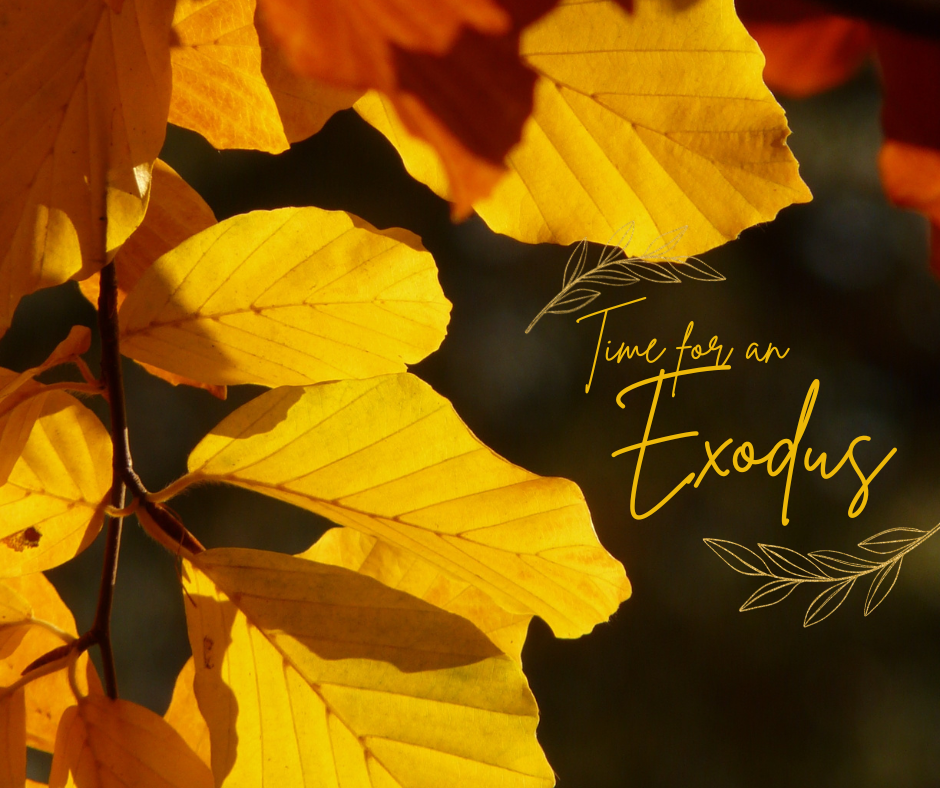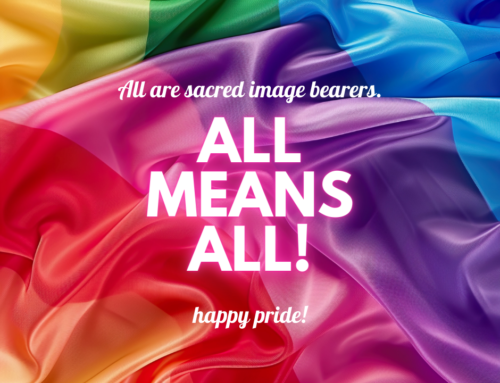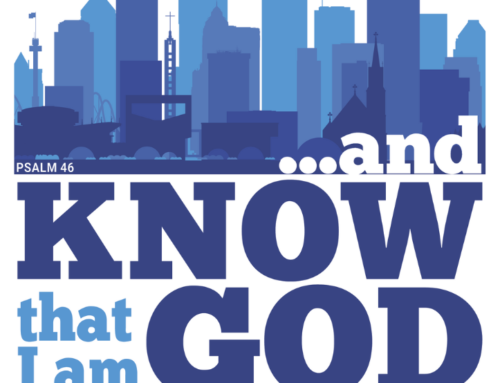Summer has begun its lumbering walk toward crisp and bright autumn. In just a few short weeks, the leaves will begin to change and drop from the trees, making that satisfying bed of crunch. Teachers, students, and staff are heading back to school this week. The air smells of fall. The season is changing.
On one level, we know and understand that change is the only constant in life. But on a deeper level, most of us are lulled to sleep by the comforts that feel consistent. Many people resist change, even when it is inevitable. Even when it is the best thing for us.
The book of Exodus is the second book in the Bible. It details God’s liberative work to set free the enslaved Hebrew people from the cruel mastery of the Egyptian pharaoh and lead them into the Promised Land. We forget what a radical claim such a story makes—that the Divine is on the side of those who are held captive. God does not stand with the powerful but with the oppressed.
Shockingly, by the end of chapter 14 in Exodus, the people are set free and Pharaoh is defeated. But the book has another 26 chapters to go. And the “exodus” continues through the books of Leviticus, Numbers, and Deuteronomy. The Israelites don’t even get into the Promised Land until the book of Joshua. That’s more books than it took Frodo to get to Mordor. Someone has said that the first movement of Exodus is God getting the Israelites out of Egypt, and the rest of the story is God getting Egypt out of the Israelites. 300 years of being held in slavery has a way of shaping a people. Put another way, the majority of the Exodus is God teaching the Israelites what it means to be God’s people in their world. It is God deprogramming them from the ways of the empire. Their exodus is both in body and in mind and soul.
We need this same kind of Exodus too.
Just like the Israelites who “grumbled” at bread from heaven being given to them every day and resisted the changes to their ways of living that God asked of them.
Just like them, we have been “programmed” into patterns of thinking and acting and being that are not reflective of Christ’s Kindom. In ways that aren’t loving to others, ourselves, or creation.
Maybe you’ve caught yourself saying the exact thing that you know will get a rise out of your partner because you feel hurt. Or maybe you’ve heard words come out of your mouth toward your children as they prepare for school—words that shame them or their bodies. Maybe you’re carrying around a bitterness or a grudge for something that happened 10 years ago. Maybe you’re so convinced that you’re in the right that you’d rather be angry and alone than be connected and rooted. Maybe you don’t fight fair. Maybe the person you are the meanest to is yourself. Or that person whose face just popped into your mind.
Maybe as an outcome of the way that our religion has developed, people of faith can be particularly averse to change. We only want the hymns that moved us when we were young. We want to learn fun new tidbits about faith, but we become resistant to truly experiencing the Exodus that God has prepared for us.
But step outside today. The air is crisp and clear. Our corner of the world has the tang of change on the wind. Look at the trees and hear their wisdom—it is beautiful to let go of that which is harmful to us. It is beautiful to embrace the change that God has invited us into. Perhaps it is time to change. Perhaps it is time to follow God’s calling into an Exodus.
– Pastor Megan





